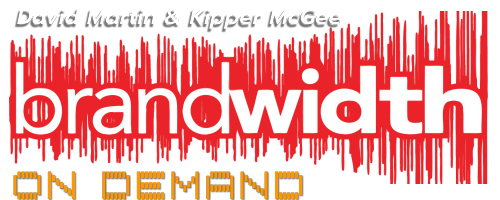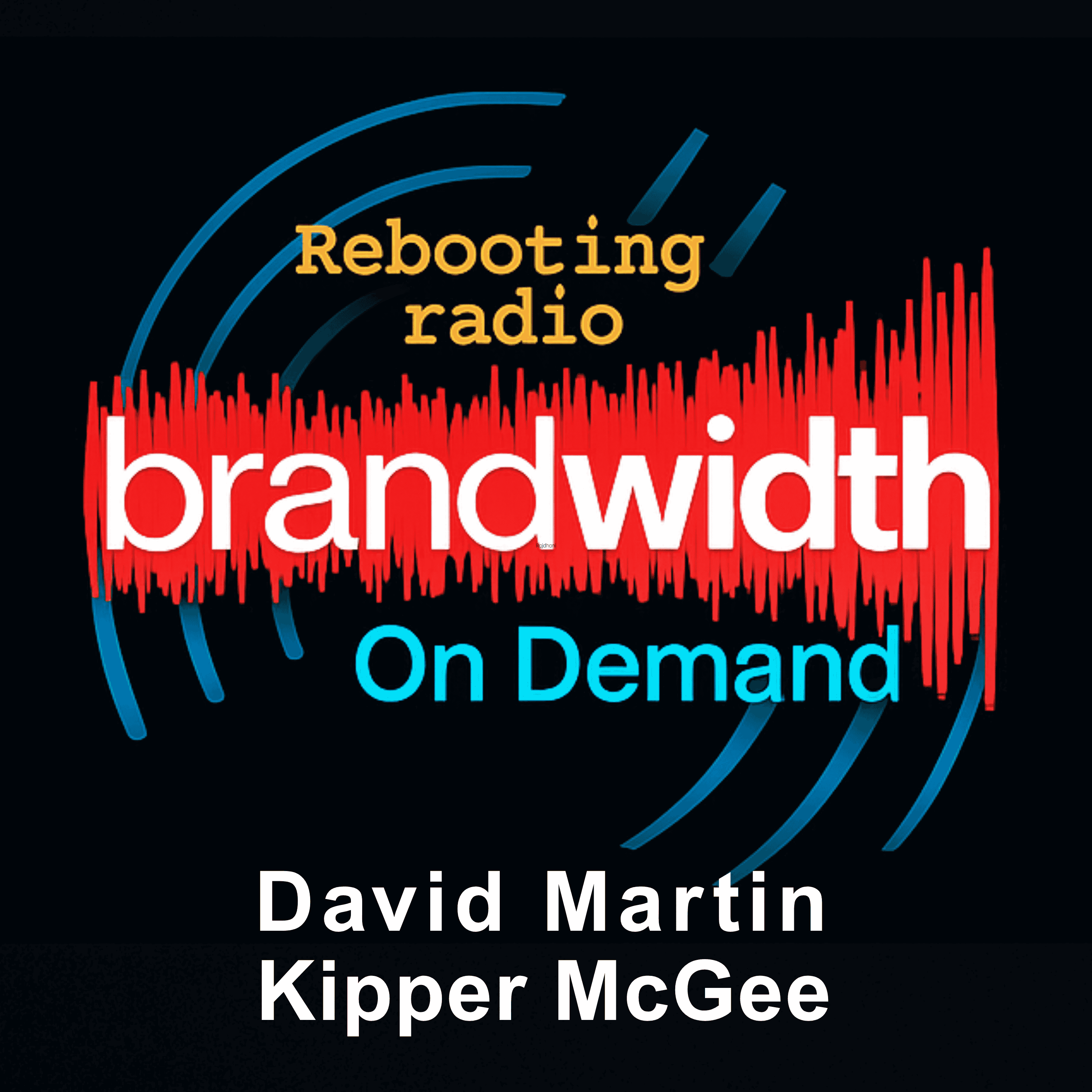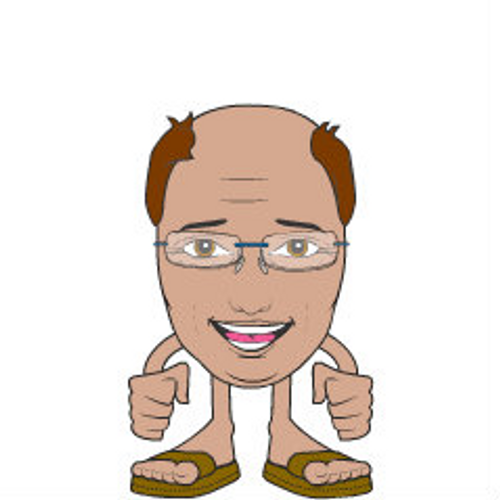Episode 205
Beyond the Infinite Dial: Edison's Larry Rosin Reveals 5 Must-Know Survival Moves
This time we welcome Larry Rosin, President of Edison Research and a pioneer in media and consumer insights. With over three decades of experience, Larry has shaped the audio industry’s understanding of audience behavior through groundbreaking studies like The Infinite Dial and Share of Ear. These reports spotlight the rapid changes reshaping radio, podcasting, streaming, and digital audio.
As colleagues and peers see their positions eliminated in the face of industry upheaval, the time to innovate is now.
Fortunately, Larry brings us a POTENTIALLY OPTIMISTIC message: 53% of Americans aged 13-34 still listen to radio daily, proving its enduring relevance—but ONLY if the industry evolves. As layoffs and shrinking budgets threaten stations nationwide, radio is at a pivotal moment. Larry stresses that adapting to today’s digital realities isn’t optional—it’s survival.
Drawing on Edison's findings Larry outlines the urgent steps radio must take to remain competitive. He explains why the industry must fully embrace digital platforms, prioritize seamless user experiences, and focus on live, local content that audiences can’t find elsewhere. From optimizing over-the-air and streaming integration to addressing ad loads that drive listeners away, Larry offers a practical roadmap for success.
He also highlights podcasting as a major growth opportunity and stresses the importance of adapting to the evolving mediascape, where smartphones and on-demand options dominate. For radio to thrive, leaders must recognize the shift and act decisively.
This episode isn’t just informative—it’s a call to action. Radio has the tools to succeed, but survival hinges on understanding and implementing the key strategies Larry shares.
Learn where radio stands, what it must do to adapt, and how to secure its future in a fast-changing world.
***This Time We’ll Learn:
[02:01] Why Larry says ‘dipping a toe’ into digital is no longer enough for radio’s survival…or YOURS!
[05:15] How the explosion of smartphones and new platforms has transformed audio consumption forever.
[09:00] Why compelling content—not just convenience—is critical for radio’s dominance in the car.
[14:00] How research proves LIVE and LOCAL radio can seize more than just breaking news opportunities to stay relevant.
[16:26] Why radio’s unmatched reach makes it a cornerstone of ad-supported audio.
One Minute Martinizing Dave Martin explores WHAT's NEXT?
Please help us thank these BRANDWIDTH ON DEMAND supporters:
Get the FREE BRANDwidth newsletter
Return to OTHER BRANDwidth Episodes
Mentioned in this episode:
visit: www.throwbacknation.com
Transcript
BW205 - Larry Rosin – Edison Research
Larry Rosin: [:VO: BRANDwidth on Demand. Rebooting radio with a different take on all radio can be.
Larry Rosin: When you look at all these things in Share of the Era, to me the most compelling one is the reach. And that reach is above 50 percent even among, say, 13 to 34 year olds. So even younger people still listen in shockingly huge numbers. So that's a huge story.
VO: Now your guides through the Mediamorphosis. David Martin and author of the book BRANDwidth, Media Branding Coach Kipper McGee.
of Edison Research. Larry's [:David Martin: Now under his leadership, Edison Research has produced influential studies, including the Infinite Dial and the Share of Ear. They provide invaluable insights into radio, podcasting, digital media trends, just audio overall. Larry's expertise is shaping the industry. Making him a sought after speaker. He's one of our leading thought leaders.
David Martin: BRANDwidth on Demand is proud to welcome one of the industry's most respected figures, Larry Rosin. Hey, Larry.
Larry Rosin: Thank you for that kind introduction.
to digital but haven't quite [:Larry Rosin: Well, we've been doing this for a long time and we've been tracking trends across radio and all forms of audio for, Well, over 25 years with our Infinite Dial Study and taking a very detailed look at Share of Ear for a decade. And I always tell the story about, one of the things when you're older, like me, and you've worked in the radio world for a long time, you sort of always trained with this idea that nothing is easier to listen to than radio radio is the easiest thing, and certainly in the car for, whatever station you had on when you turn the car off is there when you turn it on, et cetera.
Larry Rosin: And, we were doing focus groups with young people and talking about why they should listen to the radio. And invariably they'll say, well, it's hard.
Kipper McGee: Wow.
e, that was a real sort of a [:Larry Rosin: And you really need to jump into the pool completely. You have to understand that less and less listening is happening and going to happen on a traditional radio receiver. I say it all the time and no one is loyal to frequency modulation. They like the content, right? They like the personalities, the music, the information, the companionship, all they get from radio, but it's not because it's frequency modulated because it's on FM, they [00:04:00] listen, it's the content that they care about. So you've got to be wherever they're listening and don't think anyone's loyal just because the frequency is being modulated in some fashion.
David Martin: What kind of big trends have you seen? I mean, if you back up, Larry, and take a look, longitudinally, since the beginning of these landmark studies, what jumps out at you?
Infinite Dial, we started in:Larry Rosin: And, only like a quarter of people did in 1998. Your broadband would just was being introduced at that point. And that was a big deal when that came out. And I do remember in that first study in 1998, have you ever listened to radio over the internet? And we were surprised it was 6 percent of all Americans said, yes.
doing that study, obviously [:Larry Rosin: And, so, um, the changes all come through those technologies. Again, when we, if we had Share of Ear in 1990, we would have asked about maybe three or four things, right? You could listen to the radio, you could listen to CDs or cassettes or vinyl to recorded music in that fashion. And the really, Wasn't much else that you could possibly use to listen. And now there's such an explosion in other ways that people can access audio content, the phone being the most important one, but obviously through your computer, through a smart speaker, through your television, which is a rapidly growing pathway especially for younger people.
rs, the ability to listen on [:Larry Rosin: You just can't pretend that we're still in 1990 when people had so few options, they have lots and lots of options and you've got to make sure they pick yours.
Kipper McGee: Yeah. And you mentioned options and how they get it as well. The various platforms. What are you seeing in trends in terms of what they're listening on? If it's not a radio, is it an app stream computer? headphones?
Larry Rosin: Right... so per our estimates, the overwhelming majority of radio is still listen to on our radio. So our estimate is something like 87 or 88 percent of the time spent listening to radios being listened to on our radio and about 12 or 13 percent is being listened to via streams on different kinds.
st source of that listening, [:Larry Rosin: The people who have them like them, the people who have them use them, but it hasn't a deep ubiquity, the way that the phone obviously has. And then with regard to radio content, some is still on the computer. The people are listening through, speakers on their computer or something like that. And then very small amounts through the television where people can access apps through their TV or websites or their TV. It's really the phone is the primary pathway, but radio has not done a good job on many levels of being competitive on digital devices. They've, made it challenging in lots of ways.
app have made sense for them [:Larry Rosin: And we're still talking about that. And then on top of which, in the digital realm. A radio station that has, 14 to 18 minutes of commercials per hour, often really, really struggles when people have products like Pandora and Spotify, Apple Music, Amazon Music, et cetera, as other options often with far fewer, or if you pay no commercials.
David Martin: And Larry, does the car or vehicles still an area where radio captures a lion's share?
ning there as well as people [:Larry Rosin: And, a large number of the quarter hours to radio come in the car. And people forget that, with the exception of very few people, most people, most will spend an hour a day in their car. So there's only so much time spent that you can get in the car, but you can get tons and tons of reach.
Larry Rosin: And yes, radio remains really competitive in the car, and the radio should be. deeply, I don't know if paranoid is the right word, but very, very careful about making sure that it remains in the car. If that's important to them. I mean, I understand some of these, regulatory efforts and other things, but, the best thing, in my opinion, to, be listened to in the car is to have content so compelling that people will find it no matter what.
ke this, AM in every car act [:David Martin: Uh-hmmm
Kipper McGee: Uh-huh
Larry Rosin: And I don't think the only reason that people listen to the radio in the car is because it's easy, even though that's true for most people. In most cases, I think there is something about the car and radio that just goes together the way macaroni and cheese just go together or peanut butter and jelly just go together.
lean back, as they say, and [:David Martin: The head honcho of Edison Research, Larry Rosin, someone you'd like to hear us interview. Well, a topic we should cover. Let us know. Email your suggestions to show at BRANDwidth on Demand dot com or [00:12:00] reach us on social BRANDwidth plus on Insta, Facebook and X. That's BRANDwidth plus. P L U S BRANDwidth plus,
Kipper McGee: And if you're new to our podcast, we want to say welcome and ask you to hit the follow button wherever you're getting this.
Kipper McGee: And if you've been with us for a while, please tell a friend BRANDwidth on Demand. Our goal is to assist you in mastering your audio craft.
David Martin: Coming up, Larry shares opportunities. They may be hiding in plain sight.
Spot - Musicmaster.com: Uh, well, yeah, we have a lot going on, multiple stations and formats. We really need to bundle them all.
Spot - Musicmaster.com: Yeah, that sounds really good.
Spot - Musicmaster.com: Who are you talking to?
Spot - Musicmaster.com: Yeah, I'd like that. It's Dave from Music Master.
Spot - Musicmaster.com: Dave from Music Master at two in the morning? Who is this?
Spot - Musicmaster.com: I told you it's Dave from Music Master.
Spot - Musicmaster.com: Dave from Music Master, huh? What are you wearing?
t music scheduling software, [:Spot - Musicmaster.com: Music Master is there. Details at musicmaster. com.
Spot - RadioContentPro.com: Wondering how to put AI to work for you? Well, here's a must have tool. Radio Content Pro constantly searches hundreds of verified sources, then curates content to use on the air, online, and on social media. It writes newscasts, entertainment reports, teases, phone topics, blog posts, social media posts, and more for every single topic.
Spot - RadioContentPro.com: And RCP's amazing sidekick lets you personalize the content to fit your style and local market. Get details and a free seven day trial now radio content pro. com
VO: Opportunities Hidden in Plain Sight. BRANDwidth on Demand
David Martin: We are with Larry Rosin from Edison Research. Larry, What opportunity do you see that lies ahead that we're not exploiting right now in terms of radio?
Well, i'm a big believer in [:Larry Rosin: I have breaking news and show that you are there. And of course those are big national stories, but every day there are big local stories that [00:15:00] people might want to know. There's been a terrible accident on the freeway, and you might need to detour around it or whatever it might be, We talk about live and local and so many stations just don't deliver on live and local, and I think that's just such a missed opportunity.
Larry Rosin: It's so much a part of what we do. that sort of romantic vision of radio and I understand all the cost challenges that radio station has, but at some point you're selling your blood plasma to pay for your medical bills and at some point it just doesn't pay off.
Kipper McGee: Yeah.
David Martin: All this great research you've done, what's the most exciting stuff about radio that you can talk about today?
and older listen to the [:Larry Rosin: So we do this diary study. We ask people to keep a very detailed one day audio usage diary, and nearly two in every three. And again, this is age 13 and older will write at least some radio listening into their diary. And so radio has such a compelling reach story. I know they also get that story through Nielsen data, but , to have multiple studies validating that, and there's really nowhere else advertisers can go to achieve so much reach.
Larry Rosin: So to me, that's the single most powerful story. And that reaches above 50 percent even among, say, 13 to 34 year olds. So even younger people they still, they might listen to less radio than previous people did, but they still listening in shockingly, huge numbers. So that's a huge story. I think in share of your that we're able to do is to look at ad supported media versus media like we were talking about earlier with satellite radio that people pay on the music channels.
They don't have commercials. [:Larry Rosin: But when you just isolate that world. And podcasts, obviously people can advertise on to radio is a huge, huge percentage of that kind of listening. So, you know, it has such a powerful rich story. It has such a huge share of ad supported audio even down to younger demographics. There's all kinds of positive stories that radio can tell from our data, and our clients often do tell those stories.
tens and tens of millions of [:David Martin: The co -founder of Edison Research, Larry Rosin, what a great guy.
David Martin: Links to all the Edison studies and more in the show notes. Just scroll down on your phone.
Kipper McGee: As always, our thanks to executive producer Cindy Huber. She gets all of this stuff together. And our associate producer, Hannah B., handles booking. And coming up next
Next Guest: Jimmy Failla: Hi, this is Jimmy Failla, host of Fox Across America and Fox News Saturday Night with Jimmy Failla. Look at me. On the next BRANDwidth on Demand, yes, you will hear me, and I'm worth hearing, because I went from community college, where I majored in Nintendo, to driving a New York City cab, where I majored in dodging gunfire and time travelers, to hosting two shows on the biggest media platform in America, the point I'm making is few have accomplished more with less, and I'll deal you in on some of my secrets on the next BRANDwidth on Demand.
weekend in your town? We'll [:Kipper McGee: and I'm Kipper McGee. May all your BRANDwidth be WIDE!.




